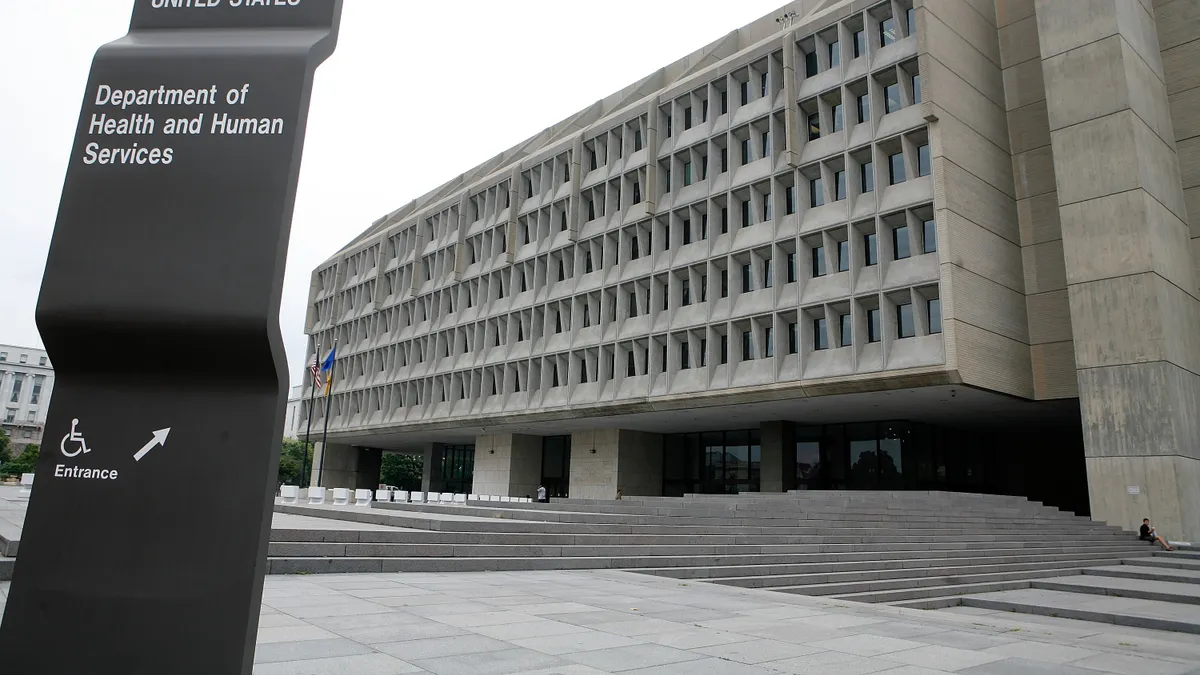Dive Brief:
- CMS is planning to scrap its contentious breakthrough payment rule after concluding it is not in the best interest of Medicare beneficiaries.
- The Medicare Coverage of Innovative Technology (MCIT) pathway would have allowed medtech companies to secure near-automatic coverage for a period of four years with an FDA breakthrough device designation. However, after buying itself time to review the rule, CMS concluded there are "significant concerns" about the clinical evidence on breakthrough devices in the Medicare population.
- AdvaMed said the proposed repeal is the "wrong decision" and will have the chance to make its case before the action is finalized. Nonetheless, the proposal could yet be resurrected through the second iteration of the 21st Century Cures Act next year as it was recently included in a discussion draft of the legislation.
Dive Insight:
The MCIT rule was part of a raft of regulations from the final days of the Trump presidency that the Biden administration put on hold. Critics such as health insurance association AHIP as well as some doctor groups drove CMS to delay implementation. After the first delay, the agency pushed back the implementation date again and expressed concerns with the impact of the rule. Those concerns ultimately persuaded CMS to kill off the proposal.
“While the rule tried to address stakeholder concerns about accelerating coverage of new devices, significant concerns persist about the availability of clinical evidence on Breakthrough Devices when used in the Medicare population as well as the benefit or risks of these devices with respect to use in the Medicare population upon receipt of coverage,” CMS wrote in a notice to disclose the repeal.
AHIP in April submitted comments to CMS warning that the MCIT rule could "potentially result in premature coverage of unproven devices for the Medicare population, exposing seniors and people with disabilities to increased health risks." The health insurance group also warned "once a device is on the market and covered, removing it from the market can be exceedingly difficult, even if additional data indicate safety concerns."
The concerns led CMS to conclude the proposed rule may provide coverage of devices despite the lack of evidence their use is "reasonable and necessary" in the Medicare population. As such, the agency found the rule "is not in the best interest of Medicare beneficiaries."
Medtech trade group AdvaMed said the planned CMS repeal is the wrong decision for "countless Medicare patients" and for "American medical innovation." As AdvaMed sees it, patients who have run out of treatment options should have immediate access to breakthrough devices approved by FDA.
"Doctors and patients should be trusted to make the right medical decision," AdvaMed CEO Scott Whitaker said in a statement.
CMS originally proposed the rule because of concerns "that delays and uncertainty in Medicare coverage slowed innovation and impaired beneficiary access to important new technologies," the agency wrote. However, CMS has since decided there are other ways to achieve the goals such as the improved use of existing pathways or future rulemaking.
Analysts at Cowen, while acknowledging the repeal is "disappointing" for the medtech industry, highlighted the potential for future rulemaking as a way the industry could still realize some of the benefits of MCIT. The analysts also see MCIT as "a good candidate" for Cures 2.0. The payment rule was included in a draft package released by lawmakers earlier this year.
CMS is accepting feedback on the proposed repeal of MCIT for 30 days.









